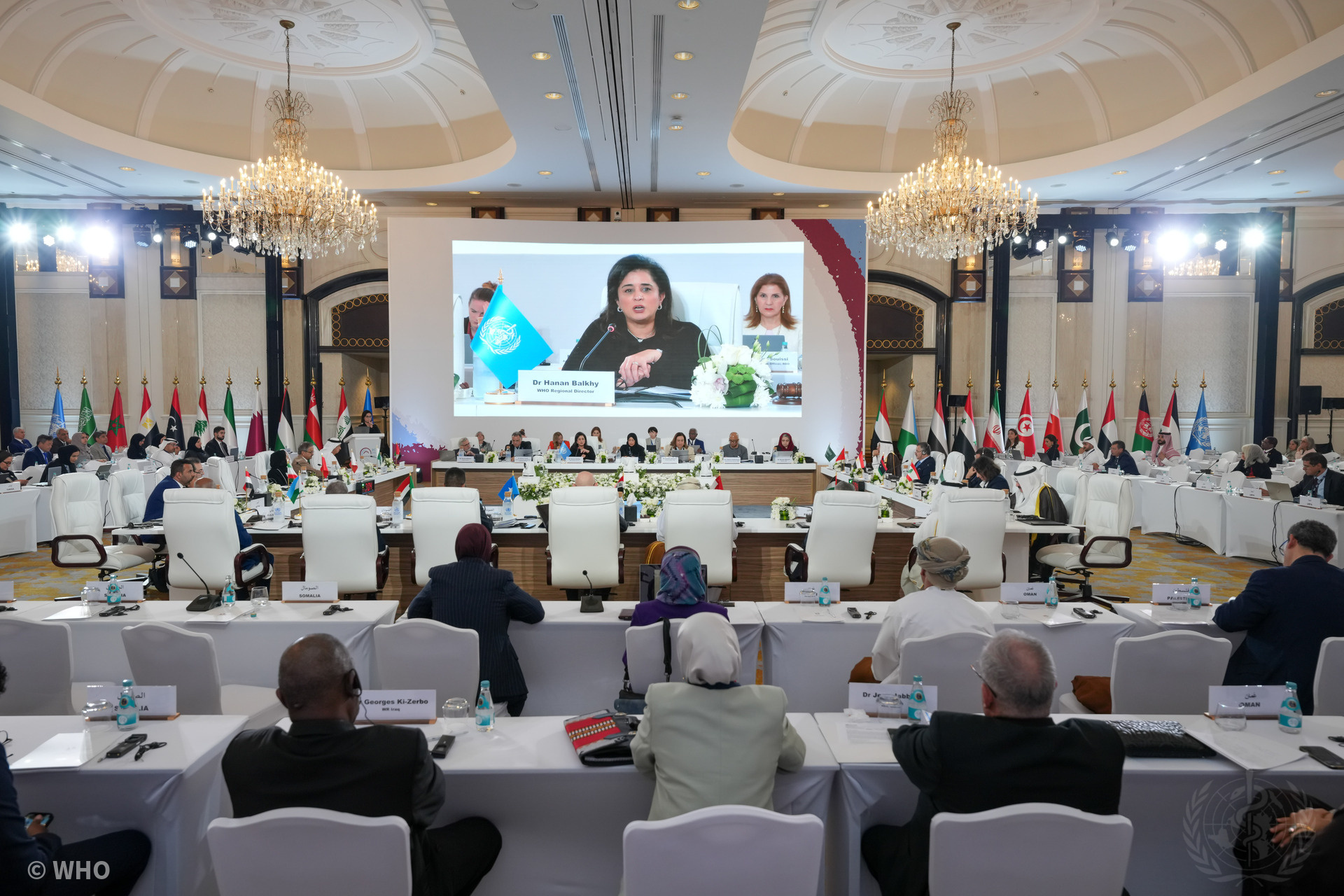
The seventy-first session of the Regional Committee of the World Health Organization for the Eastern Mediterranean was opened this morning in Doha, Qatar, under the auspices of the Director-General of the World Health Organization, Dr. Tedros Adhanom Ghebreyesus, who participated remotely. The opening was also attended by the Regional Director of the organization, Dr. Hanan Hassan Balhki, the Minister of Public Health of Qatar, Dr. Hanan Al Kuwari, and the Minister of Health and Human Services of Somalia, Dr. Ali Hajji Abubakar, who chaired the previous session. Additionally, the regional committee witnessed the attendance of some high-level officials from 22 countries and regions, along with representatives from several international, regional, and national organizations. This session, the first after Dr. Hanan assumed the position of Regional Director, is being held under the theme "Health Without Borders."
During his speech, Dr. Tedros addressed the region's current challenges, including conflicts in the Palestinian territories, Sudan, Yemen, and Lebanon. He made three requests to member states regarding participation in the negotiations on the pandemic agreement, implementation of the fourteenth general work program, and participation in the organization's investment round. The Regional Director, Dr. Hanan Balhki, echoed his sentiments, emphasizing the need to discuss challenges clearly and transparently. She stated that our resolve must remain strong despite the difficult circumstances.
During the first session, Dr. Hanan Al Kuwari was elected  Chair of the Committee. In contrast, the Ministers of Health from Djibouti and the Islamic Republic of Iran were elected as Vice Presidents.
Chair of the Committee. In contrast, the Ministers of Health from Djibouti and the Islamic Republic of Iran were elected as Vice Presidents.
In her opening speech, Dr Hanan Al Kuwari confirmed that conflicts and pandemics had weakened health services in many countries, necessitating responsibility and solidarity to improve the lives of all people. She stressed the importance of investing in global health to achieve stability and security.
For his part, Dr. Abubakar discussed the fruitful deliberations of the previous session, asserting that promoting health in the region is a personal commitment for every health minister. He also condemned the attacks on civilians and healthcare facilities in Gaza, calling for an unconditional ceasefire.
Professor Izzedin Abual-Eish from the University of Toronto also shared his painful experience of loss in Gaza during the opening session, emphasizing the power of hope in the face of atrocities and the need to strengthen human connections.
Additionally, the committee delegations participated in the "Health is Action and Word" event held at Oxygen Park, a global health initiative to promote physical activity.
The seventy-first session of the Regional Committee will continue until October 17, 2024, during which the strategic plans of the World Health Organization will be discussed, including a regional strategic implementation plan to guide work over the next four years.

.jpg) Equipe de rédaction
Equipe de rédaction